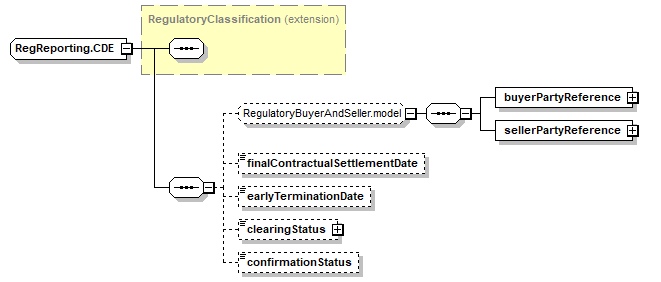
Namespace: |
|
Content: |
complex, 6 elements |
Defined: |
globally in fpml-recordkeeping-processes-5-11.xsd; see XML source |
Includes: |
definitions of 4 elements |
Used: |
at 1 location |

XML Representation Summary |
|||||
<...> |
|||||
|
|||||
</...> |
|||||
|
Type Derivation Tree
RegulatoryClassification (extension)
|
|
<xsd:complexContent>
<xsd:extension base="RegulatoryClassification">
</xsd:extension>
</xsd:complexContent>
</xsd:complexType>
|
Type: |
ClearingStatusValue, simple content |
|
xsd:normalizedString
|
maxLength: |
255
|
minLength: |
0
|
Type: |
xsd:token, predefined, simple content |
Type: |
xsd:date, predefined, simple content |
Type: |
xsd:date, predefined, simple content |
|
XML schema documentation generated with DocFlex/XML 1.10b5 using DocFlex/XML XSDDoc 2.8.1 template set. All content model diagrams generated by Altova XMLSpy via DocFlex/XML XMLSpy Integration.
|